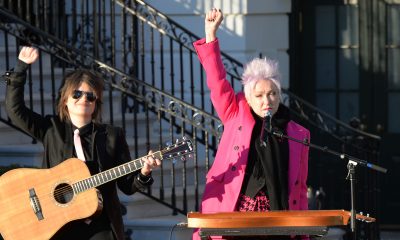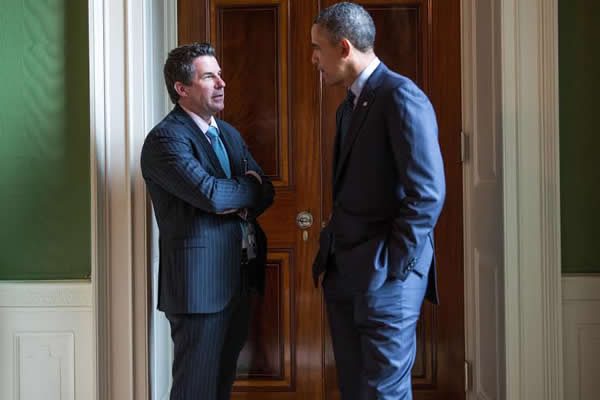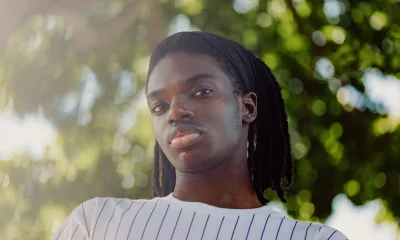Arts & Entertainment
Notes from the stage
Gays, allies worked the region with memorable concerts in 2011

Washington is always a big concert town — most major tours have stops here — but this year was especially teeming with gay and gay-friendly big-name musical acts. There was such an abundance of options, some evenings — like July 31 when Dolly Parton was at Wolf Trap and Britney Spears was at the Verizon Center or Sept. 1 when Stevie Nicks was at Jiffy Lube (Nissan) and Olivia Newton-John was in Baltimore — music fans had to make tough choices.
I didn’t get to everything but did see a lot. Among the highlights:
• Janet Jackson brought her “Up Close and Personal Tour” to DAR for two nights in March. Significantly scaled back from the previous “Rock Witchu Tour,” it was still a hits-packed extravaganza that followed her usual medley-heavy format. Glimpses of Michael — on duet “Scream” and in a childhood shot during “Together Again,” were especially poignant.
• A trim and svelte Jennifer Holliday (“Dreamgirls”) was here twice — she performed with the Gay Men’s Chorus of Washington June 4, then was back the next weekend to play Pride for a MIA Kelly Rowland. Her powerful, growl-heavy vocals were as solid as ever. She and the Chorus brought down the house with soulful covers of “Lean on Me” and “I Believe I Can Fly.” Rhianna was in Baltimore the same night.
• Gay crooner Michael Feinstein brought his booming baritone to the Kennedy Center in April for a delightful old-school-infused evening of standards, Sinatra and more.
• Also sporting a much-trimmer figure, Aretha Franklin played an odd-but-enjoyable Wolf Trap show June 21. That rainy, muggy night found the Queen ignoring all her trademark hits in favor of show tune covers (“As If We Never Said Goodbye” for one) and second-tier favorites (“Baby I Love You”). For long-time fans, it was a refreshing change of pace. First-timers were likely disappointed not to hear “Respect” and “Natural Woman.”
• Two local gay talents played cabaret shows at Signature Theatre in late July — Will Gartshore and Peter Fox and, while both good, were a study in contrasts. Gartshore’s booming voice carried an autobiographical show. Fox won the crowd over with his charm and unpretentiousness during a standards-heavy set.
• It was hard to tell how much of Dolly Parton’s “Better Days World Tour,” which stopped down at Wolf Trap in July, featured live singing but you have to give her this — at two-and-a-half hours, it was a generous evening that found the Blue Valley Songbird darting through covers (“River Deep Mountain High”), hits (“9 to 5,” “Islands in the Streams”), gospel, bluegrass and more.
• ‘90s hit-maker Joan Osborne was at the Birchmere in August with an unpredictable, eclectic 90-minute set. “Relish” classics (“One of Us” and “St. Theresa”) coalesced nicely with covers and lesser-known recent material.
• She doesn’t tear it up like she did in the old days, but what Stevie Nicks lacks in passion and grit, she’s made up for in pitch and finesse. Her “In Your Dreams Tour,” supporting her amazing 2011 new album (her first in a decade), found the Fleetwood Mac singer taking her time, giving her band plenty of chances to shine and balancing a wealth of cuts from the new album with trademark Mac and solo hits like barnburner “Edge of Seventeen” and “Rumors”-era wonder “Gold Dust Woman.”
• One of the year’s most exquisite musical moments was undoubtedly Patti LuPone’s simple one-woman cabaret show “Shoulda, Woulda, Coulda” at University of Maryland in early September. Wearing simple black, the stark stage featured only a Steinway grand, an adept accompanist, a vase of roses and LuPone’s undiminished talent. And with that kind of voice and interpretive skill, no other bells and whistles were needed. Knowledge of LuPone’s life and battles gave her cover of Sinatra’s “My Way” added subtext.
• Just weeks later, another Broadway legend — Audra McDonald — gave a similar show at the Kennedy Center. In fine voice, she focused on lesser-known (but hardly obscure) material and previewed her upcoming “Porgy and Bess.”
• Loretta Lynn, who’d canceled in the spring, made it to the 9:30 club in mid-October. Prospects were dicey — she’d been off the road most of the year and lost her voice halfway through the night before — but she delivered brilliantly, shared her trademark self-deprecating wit with the crowd and after a few songs, just took requests pretty much the rest of the night.
• Cyndi Lauper was back at the 9:30 club again this year just days after Lynn and tore through a ferocious 80-minute set on which she balanced smoldering blues classics from her latest album with fiery new arrangements of her trademark hits. The tour, albeit with an alternate set list, is out on DVD.
• Lesbian country singer Chely Wright sat on a bar stool two nights later at the Birchmere throughout a story-heavy set. It was as much “Storytellers” as concert but that worked — Wright, who just came out last year, has a lot to say. Occasionally long winded, the overall effect was greater appreciation for her life and songs.
Other acts that played the region this year included Lady Gaga, Kathy Griffin, Kylie Minogue, Scissor Sisters, Blondie, Indigo Girls, k.d. lang, Dave Koz (twice!), Pink Martini (twice!), Melissa Etheridge, Ani DiFranco, John Waters, Catie Curtis, Kate Clinton and more.
Bars & Parties
Mixtape Sapphics hosts holiday party on Dec. 13
‘Sugar & Spice’ night planned for Saturday

Mixtape Sapphics will host “Sapphic Sugar & Spice: A Naughty-Nice Mixtape Holiday Party” on Saturday, Dec. 13 at 4 p.m. at Amsterdam Lounge.
This is a festive, grown holiday party for queer women and sapphics 35 and older at Revolt’s Christmas pop-up. There will be music, joy, and an optional White Elephant.
This is Mixtape Sapphics’ first-ever holiday party — a cozy, flirty, intentionally grounded night created just for queer women and sapphics 35+ who want real connection, festive joy, and a warm place to land at the end of the year.
Tickets start at $13.26 and can be purchased on Eventbrite.

Friday, December 12
“Center Aging Friday Tea Time” will be at 12 p.m. in person at the DC Center for the LGBT Community’s new location at 1827 Wiltberger St., N.W. To RSVP, visit the DC Center’s website or email [email protected].
Go Gay DC will host “LGBTQ+ Community Happy Hour” at 7 p.m. at Freddie’s Beach Bar and Restaurant. This event is ideal for making new friends, professional networking, idea-sharing, and community building. This event is free and more details are available on Eventbrite.
Women in Their Twenties and Thirties will be at 8 p.m. on Zoom. This is a social discussion group for queer women in the Washington, D.C. area. For more details, go to Facebook.
Saturday, December 13
Go Gay DC will host “LGBTQ+ Community Brunch” at 12 p.m. at Freddie’s Beach Bar & Restaurant. This fun weekly event brings the DMV area LGBTQ+ community, including allies, together for delicious food and conversation. Attendance is free and more details are available on Eventbrite.
The DC Center for the LGBT Community will host “Sunday Supper on Saturday” at 2 p.m. D.C.’s queer community will gather for good food, laughter, and community. For more information, email [email protected].
Sunday, December 14
SADBrunch will host “HokiSlay Drag Brunch” at 12 p.m. at Throw Social. This festive affair brings fierce performances, over-the-top holiday looks, and more sparkle than a tinsel explosion. Expect powerhouse lip-syncs, laughter, and cheer hotter than your spiked cocoa. Cake Pop will host the event. Tickets cost $28.52 and are available on Eventbrite.
Monday, December 15
“Center Aging: Monday Coffee Klatch” will be at 10 a.m. on Zoom. This is a social hour for older LGBTQ+ adults. Guests are encouraged to bring a beverage of choice. For more information, contact Adam ([email protected]).
Genderqueer DC will be at 7 p.m. on Zoom. This is a support group for people who identify outside of the gender binary, whether you’re bigender, agender, genderfluid, or just know that you’re not 100% cis. For more details, visit genderqueerdc.org or Facebook.
Tuesday, December 16
Center Bi+ Roundtable will be at 7 p.m. on Zoom. This is an opportunity for people to gather and discuss issues related to bisexuality or as Bi individuals in a private setting. Visit Facebook or Meetup for more information.
The DC Center for the LGBT Community will host “Self-Defense Class with Avi Rome” at 12:30 p.m. Rome is a proud member of the LGBTQ community and a full-time martial arts instructor with 25 years of teaching experience. He holds a Fifth Degree Black Belt in Jhoon Rhee Tae Kwon Do and is the director of the studio’s Adaptive Tae Kwon Do program for students with special needs. He has also run numerous self-defense workshops for various groups and situations. For more details, visit the center’s website.
Wednesday, December 17
Job Club will be at 6 p.m. on Zoom upon request. This is a weekly job support program to help job entrants and seekers, including the long-term unemployed, improve self-confidence, motivation, resilience and productivity for effective job searches and networking — allowing participants to move away from being merely “applicants” toward being “candidates.” For more information, email [email protected] or visit thedccenter.org/careers.
Asexual and Aromantic Group will be at 7 p.m. on Zoom. This is a space where people who are questioning this aspect of their identity or those who identify as asexual and/or aromantic can come together, share stories and experiences, and discuss various topics. For more details, email [email protected].
Thursday, December 18
The DC Center’s Fresh Produce Program will be held all day at the DC Center for the LGBT Community. People will be informed on Wednesday at 5 p.m. if they are picked to receive a produce box. No proof of residency or income is required. For more information, email [email protected] or call 202-682-2245.
Virtual Yoga Class will be at 7 p.m. on Zoom. This free weekly class is a combination of yoga, breath work and meditation that allows LGBTQ+ community members to continue their healing journey with somatic and mindfulness practices. For more details, visit the DC Center’s website.
Egypt
Iran, Egypt object to playing in Seattle World Cup ‘Pride Match’
Game to take place on June 26

Iran and Egypt have objected to playing in a “Pride Match” that will take place in Seattle during the 2026 World Cup.
The Egyptian Football Association on Tuesday said it told FIFA Secretary General Mattias Grafström in a letter that “it categorically rejects holding any activities related to supporting (homosexuality) during the match between the Egyptian national team and Iran, scheduled to be held in Seattle, USA, on June 26, 2026, in the third round of the group stage of the 2026 World Cup.” Football Federation Islamic Republic of Iran President Mehdi Taj told ISNA, a semi-official Iranian news agency that both his country and Egypt “protested this issue.”
The 2026 World Cup will take place in the U.S., Canada, and Mexico. The draw took place at the Kennedy Center on Dec. 5.
Iran is among the handful of countries in which consensual same-sex sexual relations remain punishable by death.
The State Department’s 2023 human rights report notes that while Egyptian law “did not explicitly criminalize consensual same-sex sexual activity, authorities regularly arrested and prosecuted LGBTQI+ persons on charges including ‘debauchery,’ prostitution, and ‘violating family values.’” Egyptian authorities “also reportedly prosecuted LGBTQI+ individuals for ‘misuse of social media.’”
“This resulted in de facto criminalization of same-sex conduct and identity,” notes the report.
The 2024 human rights report the State Department released earlier this year did not include LGBTQ-specific references.
Soccer has ‘unique power to unite people across borders, cultures, and beliefs’
The June 26 match between Iran and Egypt coincides with Seattle Pride. The Washington Post reported the Seattle FIFA World Cup 2026 Local Organizing Committee decided to hold the “Pride Match” before last week’s draw.
“As the Local Organizing Committee, SeattleFWC26’s role is to prepare our city to host the matches and manage the city experience outside of Seattle Stadium,” said SeattleFWC26 Vice President of Communications Hana Tadesse in a statement the committee sent to the Washington Blade on Wednesday. “SeattleFWC26 is moving forward as planned with our community programming outside the stadium during Pride weekend and throughout the tournament, partnering with LGBTQ+ leaders, artists, and business owners to elevate existing Pride celebrations across Washington.”
“Football has a unique power to unite people across borders, cultures, and beliefs,” added Tadeese. “The Pacific Northwest is home to one of the nation’s largest Iranian-American communities, a thriving Egyptian diaspora, and rich communities representing all nations we’re hosting in Seattle. We’re committed to ensuring all residents and visitors experience the warmth, respect, and dignity that defines our region.”
The 2034 World Cup will take place in Saudi Arabia.
Consensual same-sex sexual relations remain punishable by death in the country. The 2022 World Cup took place in neighboring Qatar, despite concerns over the country’s anti-LGBTQ rights record.
-

 Congress13 hours ago
Congress13 hours agoEXCLUSIVE: George Santos speaks out on prison, Trump pardon, and more
-

 The White House5 days ago
The White House5 days agoTrump’s shocking East Wing amputation—and the painful fallout Americans won’t ignore
-

 Health4 days ago
Health4 days agoThe harsh truth about HIV phobia in gay dating
-

 District of Columbia5 days ago
District of Columbia5 days agoThird LGBTQ candidate running for Ward 1 D.C. Council seat




















